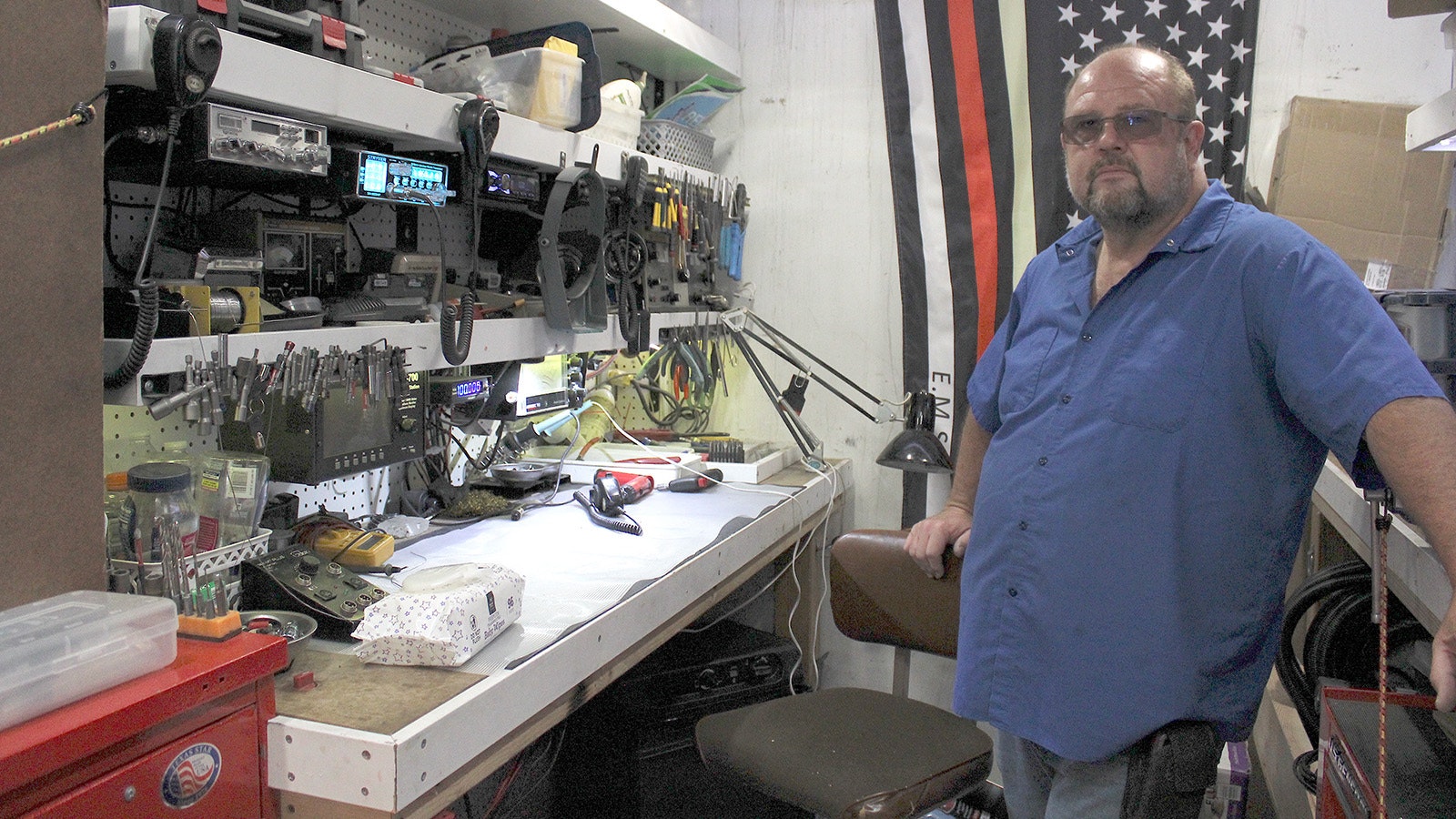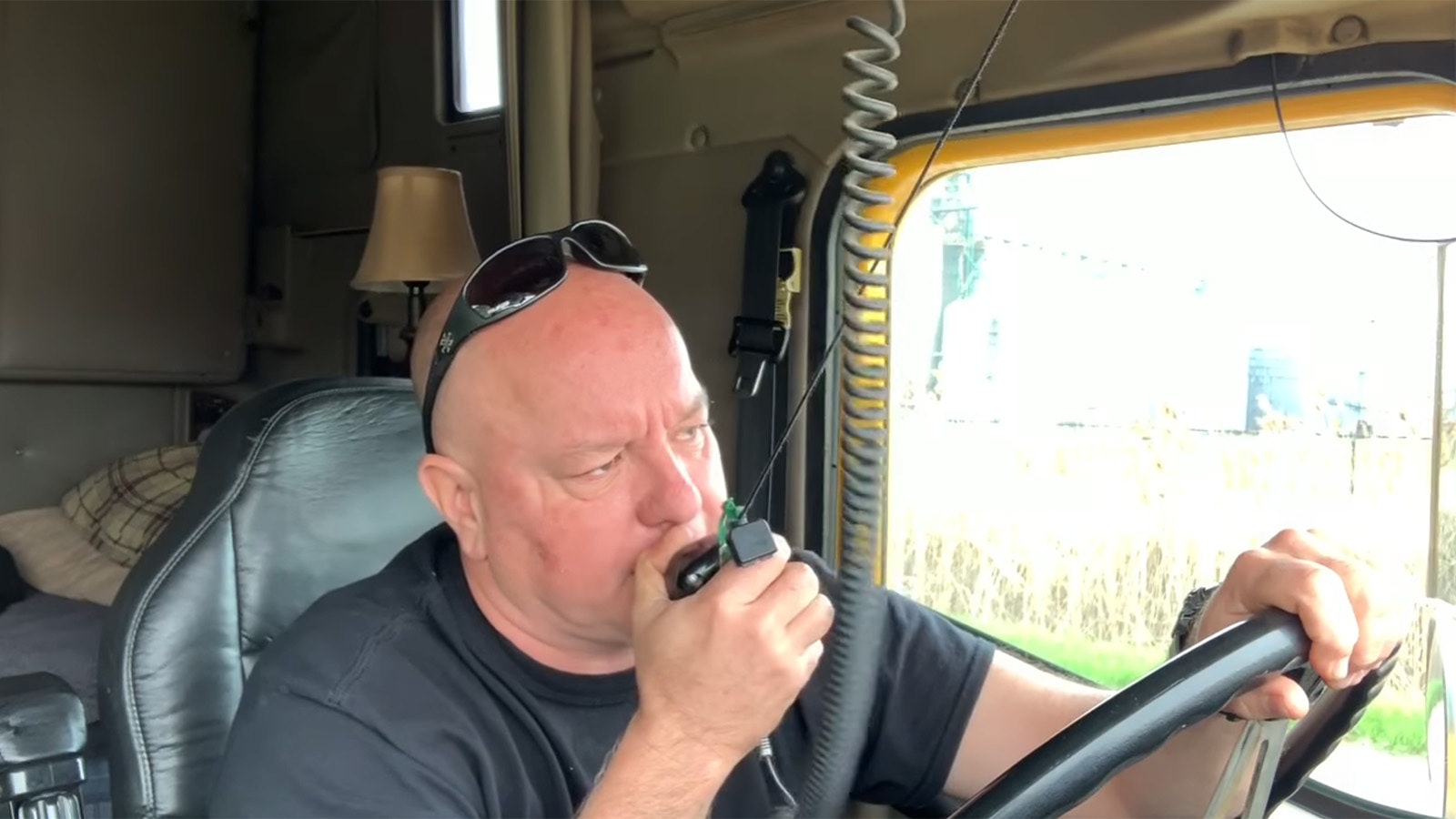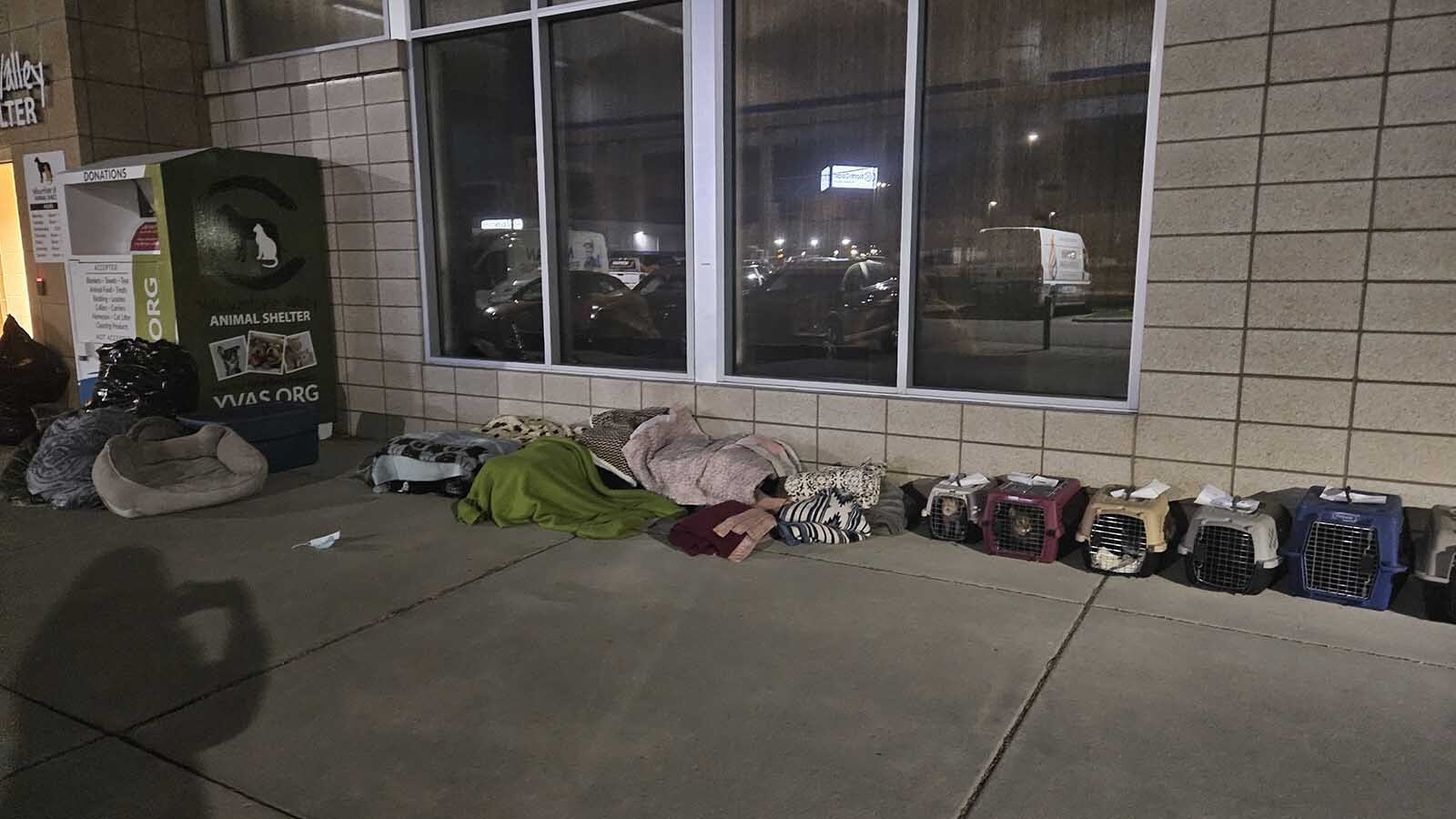The 1978 movie “Convoy” gives us an idea of how much the world of trucking has changed over the past 45. Years. Truckers today are far less shaggy and don’t wear bell bottoms.
They’re also less likely to talk to each other over their CB radios.
Also known as citizens band radios, CBs used to be standard equipment inside the cab of a semitruck. Truckers used them to meet up with old friends, make new ones and pass along the news of the road.
‘I Don’t Go Anywhere Without Mine’
Cellphones have a lot to do with why the CB radio is used less frequently today, but phones haven’t been able to replace radios entirely.
While not as common as it used to be, many truckers consider the CB radio to be an indispensable tool.
“I don’t go anywhere without mine, and they still have a nostalgia, if that’s the right word for it,” Matt Prentice, an independent truck owner/operator, told Cowboy State Daily.
Prentice has been driving America’s highways for 35 years, and much of that time he’s been making trips across I-80.
“I know every rabbit on the trail,” he said.
Prentice said that CB radios make the road safer. Nothing avoids a pileup like truckers warning that there’s an accident up the road. But he said many drivers are inexperienced and don’t use their radios. An accident warning doesn’t do any good if drivers don’t hear it.
“That’s why we have a lot of these big wrecks today,” Prentice said.

Kids These Days
Bill Johnson, owner of Red Monkey CB & Ham Radio Mobile Service, agreed it’s the younger generation that lacks an appreciation for the radio.
“A lot of newer truck drivers think it’s more of a toy than a tool. It’s actually a good tool to have if you’re out on the road all time. Even if you’re not a truck driver,” Johnson told Cowboy State Daily.
Johnson moved out to Wyoming from California about five years ago and now runs his shop out of a trailer. The trailer with the Red Monkey logo can often be spotted at the Flying J truck stop just west of Cheyenne, but he drives all over the state providing sales, service and installations.
The cell phone might be good if you get stranded, but the radio, Johnson said, will tell you if you got an accident up ahead or what traffic to avoid.
Hit Or Miss
Darryl Orr, a Cheyenne resident and long-haul trucker, told Cowboy State Daily the CB radio started to fall out of use around the 2000s, whereas in prior decades all the truckers used them.
“Today, it’s hit or miss,” Orr said.
Orr said he thinks it’s because companies are recruiting a lot of drivers from overseas.
“A lot of them don't use the radios. They have a really bad time speaking English, or they get harassed for their accent,” Orr said.
He said there’s a perception that foreign drivers are more dangerous, so other truckers will give them a hard time.
R.P. Szitisz came to Canada from Slovakia to be a driver. Now, he drives all over North America. He said he doesn’t use the CB radio, but the main reason is that the people he wants to talk to are out of range of the radio.
“I talk to lots of people, but the CB does not reach to them,” he said.
The Smarter Phone
Like Prentice, Orr said the radio is what keeps a trucker from ending up in a pile up.
“A lot of these 50-, 60-car pile-ups can be avoided if more people have radios in their trucks,” Orr said.
Smartphone apps can sometimes give traffic information, Orr said, but it can’t give you the kind of specifics that the radio can. Truckers can alert other truckers about what lane they need to be in and the time it takes to get through an accident. That way, the trucker can decide if it will take less time to take another route.
“Your cell phone, it's going to show a traffic jam, but it's not going to tell you exactly what's going on,” Orr said. “It’s not easy to switch lanes when you have multiple cars surrounding you.”





